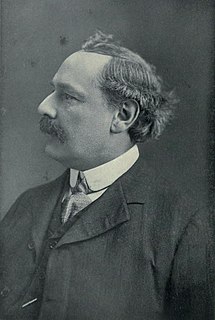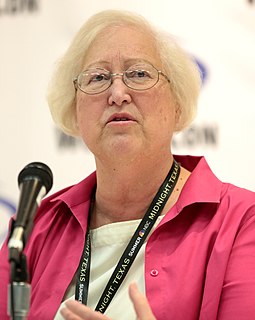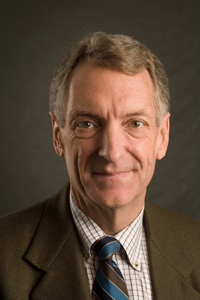A Quote by A. E. Waite
Now, occultism is not like mystic faculty, and it very seldom works in harmony either with business aptitude in the things of ordinary life or with a knowledge of the canons of evidence in its own sphere.
Related Quotes
The flavors of the peach and the apricot are not lost from generation to generation, neither are they transmitted by book learning. The mystic tradition, any mystic tradition, is of a similar nature, that is, it is dependent on direct perception, a 'knowledge' as permanent as the faculty for receiving it.
Knowledge signifies things known. Where there are no things known, there is no knowledge. Where there are no things to be known, there can be no knowledge. We have observed that every science, that is, every branch of knowledge, is compounded of certain facts, of which our sensations furnish the evidence. Where no such evidence is supplied, we are without data; we are without first premises; and when, without these, we attempt to build up a science, we do as those who raise edifices without foundations. And what do such builders construct? Castles in the air.
Then may we not fairly plead in reply that our true lover of knowledge naturally strives for truth, and is not content with common opinion, but soars with undimmed and unwearied passion till he grasps the essential nature of things with the mental faculty fitted to do so, that is, with the faculty which is akin to reality, and which approaches and unites with it, and begets intelligence and truth as children, and is only released from travail when it has thus reached knowledge and true life and satisfaction?
Actually, writers have no business writing about their own works. They either wax conceited, saying things like: 'My brilliance is possibly most apparent in my dazzling short story, "The Cookiepants Hypotenuse."' Or else they get unbearably cutesy: 'My cat Ootsywootums has given me all my best ideas, hasn't oo, squeezums?
I see top business schools working to bridge this gap [between academic research and business application] by respecting executive education, by having more mature students who proactively draw from faculty what they know they need, and by having faculty who are willing to leave their ivory towers for the murky world of business reality. Unfortunately, at other times, business professors have little or not interest or savvy about business issues.
It is very seldom that any one is in prison for an ordinary crime unless early in life he entered a path that almost invariably led to the prison gate. Most of the inmates are the children of the poor. In many instances they are either orphans or half-orphans; their homes were the streets and byways of big cities, and their paths naturally and inevitably took them to their final fate.
Have you ever realized that you can give things to God that are of value to Him? Or are you just sitting around daydreaming about the greatness of His redemption, while neglecting all the things you could be doing for Him? I'm not referring to works which could be regarded as divine and miraculous, but ordinary, simple human things - things which would be evidence to God that you are totally surrendered to Him.
Do you suppose that I should have lived as long as I have if I had moved in the sphere of public life, and conducting myself in that sphere like an honorable man, had always upheld the cause of right, and conscientiously set this end above all other things? Not by a very long way, gentlemen; neither would any other man.



































